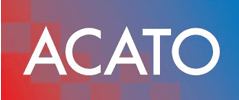Why is ISO 27001 Certification Crucial for Success
What is ISO 27001 Certification?
ISO 27001 Certification is an international standard that provides a framework for information security management systems (ISMS). It helps organizations manage and protect their sensitive information assets, ensuring the confidentiality, integrity, and availability of data.
Overview of ISO 27001
ISO 27001 is a globally recognized standard that outlines the requirements for establishing, implementing, maintaining, and continually improving an ISMS. It is designed to help organizations identify and mitigate information security risks, ensuring the security of their data and systems.
Benefits of ISO 27001 Certification
1. Protecting Sensitive Data: ISO 27001 helps organizations safeguard their sensitive information, reducing the risk of data breaches and cyberattacks.
2. Meeting Legal and Regulatory Requirements: Certification demonstrates compliance with relevant laws and regulations, avoiding potential fines and penalties.
3. Gaining Competitive Advantage: ISO 27001 certification can differentiate your business from competitors, giving you a competitive edge in the market.
4. Building Trust with Customers: Customers are more likely to trust organizations that are certified to ISO 27001, knowing that their data is secure.
5. Improving Overall Security and Risk Management: Implementing the standard enhances the organization’s security posture and helps identify and mitigate risks effectively.
Understanding the ISO 27001 Standard
The ISO 27001 standard is based on a risk management approach, focusing on identifying and addressing information security risks. It consists of requirements for establishing an ISMS, including risk assessment, risk treatment, and continual improvement processes.
Common Misconceptions About ISO 27001
Some common misconceptions about ISO 27001 include it being too complex or costly to implement, or that it is only relevant for large organizations. In reality, the standard is scalable and adaptable to organizations of all sizes, and the benefits outweigh the costs of implementation.

The Certification Process
The certification process involves several steps, including developing an ISMS, conducting a risk assessment, implementing necessary controls, documenting policies and procedures, training employees, choosing a certification provider, and undergoing an audit and assessment process.
Steps to Achieve ISO 27001 Certification
Following steps are needed to achieve an ISO 27001 cdertification:
1. Develop an Information Security Management System (ISMS)
2. Conduct Risk Assessments
3. Implement Necessary Controls
4. Document Policies and Procedures
5. Train and Raise Awareness for Employees
Requirements for Certification
Organizations seeking ISO 27001 certification must comply with the requirements outlined in the standard, including establishing an ISMS, conducting risk assessments, implementing controls, and undergoing regular audits to ensure compliance.
Choosing a Certification Body
When selecting a certification body, organizations should consider factors such as accreditation, expertise, reputation, and cost. It is essential to choose a reputable and experienced certification provider to ensure a thorough and reliable certification process.
Audit and Assessment Process
The audit and assessment process involves a series of evaluations conducted by the certification body to verify that the organization’s ISMS meets the requirements of the ISO 27001 standard. This process ensures that the organization’s information security practices are in line with international best practices.
Maintaining Certification
Once certified, organizations must maintain their ISO 27001 certification through regular audits and continual improvement of their ISMS. This includes monitoring and reviewing security controls, addressing non-conformities, and updating policies and procedures as needed.

Why You Need ISO 27001 Certification
ISO 27001 certification is essential for businesses looking to protect their sensitive data, meet legal and regulatory requirements, gain a competitive advantage, build trust with customers, and improve overall security and risk management. According to Forbes companies lacking ISO 27001 certification are more likely to experience data breaches, financial losses or reputational losses.
Protecting Sensitive Data
One of the primary reasons why ISO 27001 certification is crucial for success is the protection of sensitive data. In today’s digital age, data breaches are a major concern for businesses, and ISO 27001 provides a framework for implementing robust security measures to safeguard valuable information.
Meeting Legal and Regulatory Requirements
Compliance with legal and regulatory requirements is non-negotiable for businesses operating in any industry. ISO 27001 certification demonstrates a commitment to data security and compliance, helping organizations avoid hefty fines and legal consequences.
Gaining Competitive Advantage
ISO 27001 certification sets businesses apart from their competitors by showcasing their dedication to information security. Customers are more likely to trust companies that have achieved ISO 27001 certification, giving certified organizations a competitive edge in the market.
Building Trust with Customers
Trust is the foundation of any successful business relationship. By obtaining ISO 27001 certification, companies signal to their customers that they take data security seriously and are committed to protecting their sensitive information. This trust can lead to increased customer loyalty and retention.
Improving Overall Security and Risk Management
ISO 27001 is not just about obtaining a certification; it is about implementing a comprehensive information security management system (ISMS) that improves overall security and risk management practices within an organization. By following ISO 27001 standards, companies can identify and mitigate potential risks, enhancing their resilience to cybersecurity threats.

Preparing for ISO 27001 Certification
To prepare for ISO 27001 certification, organizations should focus on developing an ISMS, conducting risk assessments, implementing necessary controls, documenting policies and procedures, training employees, and selecting a certification provider that meets their needs.
Developing an Information Security Management System (ISMS)
An ISMS is a systematic approach to managing sensitive information, encompassing policies, processes, and controls to protect data and ensure information security within the organization.
Conducting Risk Assessments
Risk assessments help organizations identify and evaluate potential threats and vulnerabilities to their information assets, allowing them to implement appropriate controls and mitigation strategies to reduce the likelihood of security incidents.
Implementing Necessary Controls
Implementing security controls is essential to mitigate risks and protect sensitive information. Organizations should identify and implement controls based on the results of their risk assessments and the requirements of the ISO 27001 standard.
Documenting Policies and Procedures
By documenting guidelines, processes and behavioral patterns are specifically standardized. The procedures occur with fewer errors and cause less damage that threatens the existence of the company. In addition, the organization has the opportunity to record proven work processes and transfer them to other areas of work. This means that knowledge is not lost and employees understand better why they have to process something in a certain order.
Training and Awareness for Employees
Employees must understand what dangers can endanger the security of digital and analog information. The workforce is often not even aware that a threat exists. Because they are not interested in technical or economic topics, these people have ignored or never read the news in this area. Security training with the aim of raising awareness helps here so that you can be better prepared against cyber threats.

Choosing a Certification Provider
When it comes to obtaining ISO 27001 certification, choosing the right certification provider is essential. Look for a provider with a proven track record of success in helping businesses achieve certification.
When Choosing a Certification Body
Consider factors such as the expertise of the certification body, their reputation in the industry, and their understanding of your specific business needs. It is important to select a certification body that can provide tailored solutions to meet your requirements.
Accreditation and Certification Bodies
Ensure that the certification body you choose is accredited by a recognized accreditation body. Accreditation demonstrates that the certification body meets international standards for competence and impartiality.
Costs and Timeframe for Certification
Understand the costs involved in obtaining ISO 27001 certification, including initial certification fees, ongoing maintenance costs, and any additional expenses. Also, consider the timeframe for certification and ensure that it aligns with your business goals.
Benefits of Using a Third-Party Provider
Using a third-party provider for ISO 27001 certification can offer several benefits, including impartiality, expertise, and efficiency. A third-party provider can provide an objective assessment of your information security management system and help you achieve certification more effectively.
Ensuring Ongoing Compliance and Improvement
Once you have obtained ISO 27001 certification, it is important to ensure ongoing compliance with the standard. Regular audits and assessments can help identify areas for improvement and ensure that your information security management system remains effective.

Conclusion
ISO 27001 certification is crucial for the success of any organization, regardless of its size or industry. By obtaining certification, businesses can demonstrate their commitment to information security and gain a competitive edge in the market.
The Importance of ISO 27001 Certification
ISO 27001 certification is important for businesses as it helps them protect their sensitive information, reduce the risk of data breaches, and enhance customer trust. It also demonstrates compliance with regulatory requirements and helps organizations stay ahead of evolving cybersecurity threats.
Key Takeaways
Obtaining ISO 27001 certification can benefit businesses in various ways, including improved security posture, enhanced reputation, and increased customer confidence. It is a strategic investment that can drive long-term success and sustainability.
Next Steps for Achieving Certification
If you are considering obtaining ISO 27001 certification, the first step is to assess your current information security management system and identify areas for improvement. Work with a reputable certification provider to develop a roadmap for certification and implement necessary changes.
Continuing to Prioritize Information Security
Even after obtaining ISO 27001 certification, it is important for businesses to continue prioritizing information security. Regular training, updates to policies and procedures, and ongoing risk assessments can help organizations maintain a strong security posture and adapt to emerging threats.

